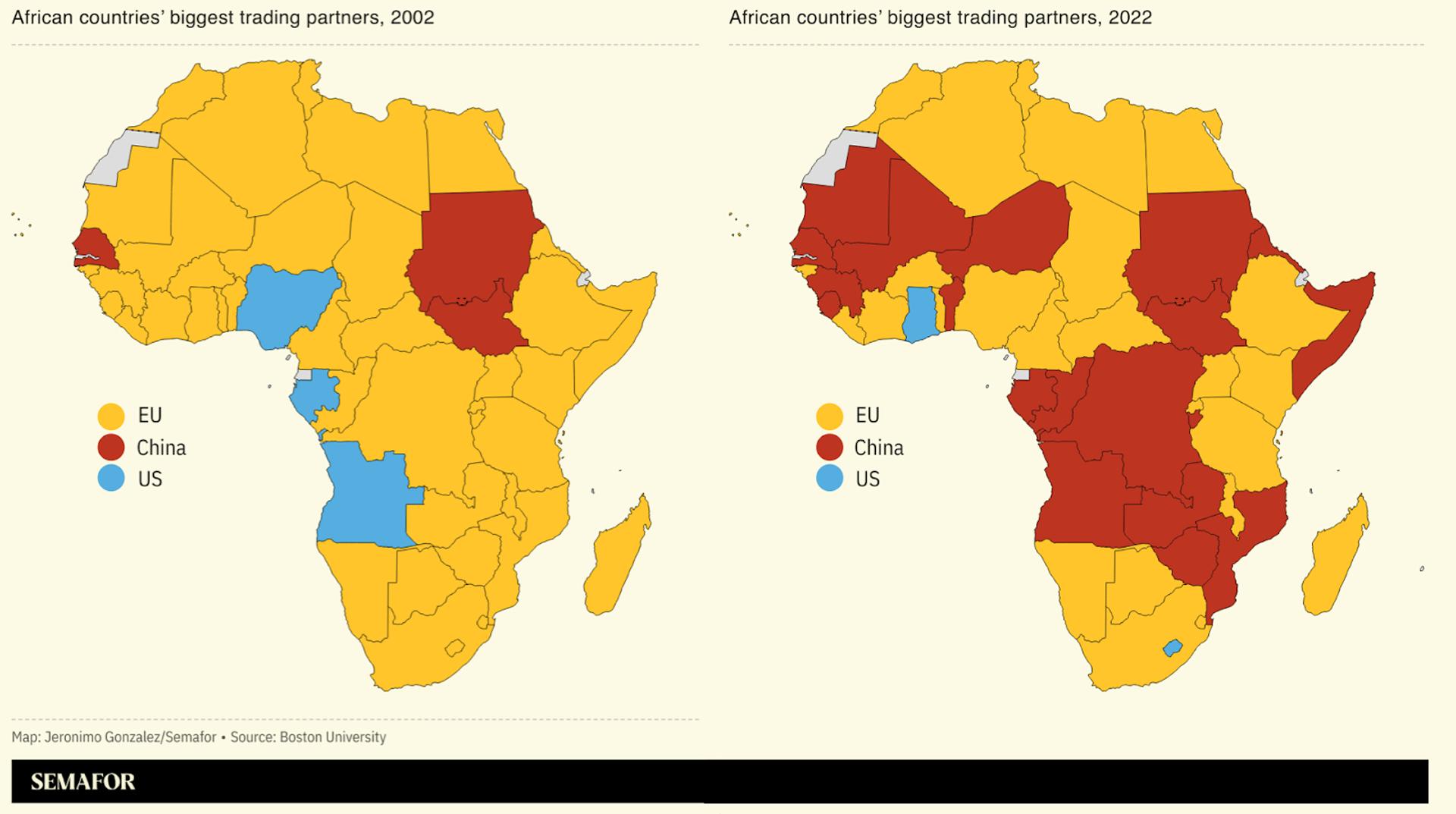The News
Chinese Foreign Minister Wang Yi began a week-long tour of African nations as Beijing seeks to bolster ties to the continent.
Africa has become essential for China as the world’s second-largest economy ramps up investment in electric vehicles and green technology, both of which require metals and minerals often found on the continent. Beijing’s bid for control of these resources has sparked a contest with the US and the EU, which have also ramped up investment in the region.
However experts believe China has the advantage, in part because it maintains relations with autocratic regimes shunned by the West. “China has become central to Africa’s policy, as an actor and an inspiration,” an expert told Reuters.

SIGNALS
Beijing’s concerted outreach contrasts to Washington’s scattered approach
Since 1950, Chinese foreign ministers have prioritized Africa for their first overseas trip of the calendar year, and Wang’s visit marks the 35th consecutive annual visit. The dedication marks a stark contrast to Washington’s less consistent approach, The Moroccan North Africa Post noted, with President Joe Biden making just one visit to sub-Sarahan Africa during his tenure. “The Biden administration says that Africa is a priority, but its actions suggest otherwise,” two security experts wrote. The incoming Trump administration, meanwhile, is likely to take a “singularly transactional approach,” an Africa expert argued in Foreign Affairs, which could make it harder for Washington to compete with China over the long term.
China’s economic slowdown could affect Africa
China’s economic woes could ripple through African countries, with Beijing providing fewer loans to the continent and taking a more hardball approach in debt-restructuring negotiations. Chinese loans to Africa have decreased since 2016, US-based researchers found, and Beijing has cut funding for the kinds of massive infrastructure projects it had previously financed in Africa in favor of so-called “small yet beautiful” investments that often have an environmental focus. China is also sub-Sarahan Africa’s biggest trading partner, which means even a 1% decline in China’s growth rate could in turn reduce growth in the region by 0.25%, according to an IMF analysis.
Beijing is ramping up its military presence in Africa
Foreign Minister Wang Yi will visit Chad as part of his tour, where French troops began withdrawing last month; experts believe Wang is likely to discuss security issues with the country’s military leadership. “China has been a reliable and stable partner for the new military juntas in the Sahel and West Africa,” one expert told Reuters. Chinese troops have ramped up their presence in Africa in recent years, according to the Africa Center for Strategic Studies, noting that the People’s Liberation Army’s largest overseas deployment is on the continent. Africa has become a “testing ground” for China’s military, a US-based analyst argued, allowing Beijing to prototype building up a military presence far beyond its own borders.

